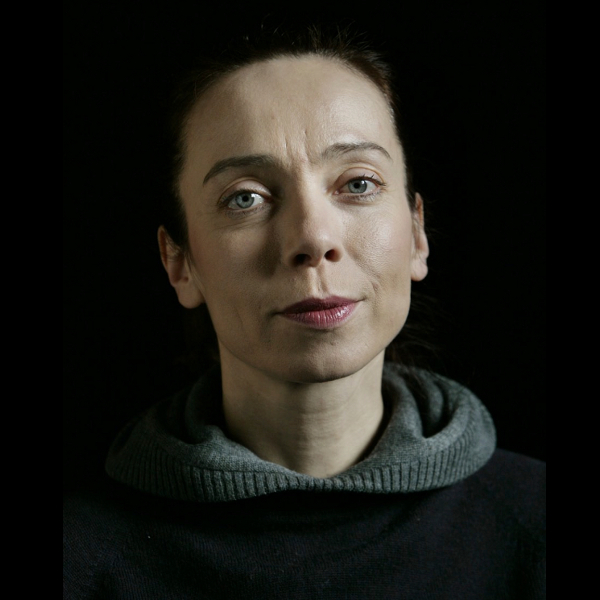Christiane Pohle

Christiane Pohle was born in 1968 in Berlin and studied acting in Hamburg. In 1999, together with colleagues, she co-founded the company Laborlavache! Since then she has been working as a director for theatre, opera and cross-over projects at Schaubühne Berlin, Sophiensæle Berlin, TIF Dresden, Theater Freiburg, Schauspielhaus Zürich, Salzburger Festspiele, Kampnagel Hamburg, Kammerspiele München, Burgtheater Wien, Schauspielhaus Düsseldorf, Theater Basel, Centraltheater Leipzig, Staatstheater Stuttgart, Staatsoper München, and others.
She received the Impulse-Preis and the Förderpreis für junge Regie der Akademie für Darstellende Künste, the Günther-Rühle-Award for the project Desirevolution, and an award for stage and ensemble at the Encounter Festival Brno for a project on Einar Schleef. She is developing most of her projects together with her dramaturg and artistic partner Malte Ubenauf.
Christiane Pohle is an experienced lecturer for acting and directing, she worked and is still working at UdK Berlin, at the University of Music and Theater Hamburg, at Falckenbergschule Munich, and at the Theaterakademie August Everding Munich. She has been working intensely at ADK Academy of Performing Arts in Ludwigsburg as director of the acting program from 2014-2019. She is leading and directing international student’s projects and workshops. 2015 she founded the international performance platform hothouse for rough translations [h4rt] together with Malte Ubenauf, Hubert Bauer, Florian Fischer, Benedikt Haubrich and others. Ηothouse for rough translations [h4rt] is the realiζation of an interdisciplinary 10-year-project, that started in Munich in an old greenhouse and is supposed to travel in varying sequences through different European countries. Christiane Pohle lives in Munich and Trieste.
WORKSHOP
The tragic messenger
Participants will examine the messenger as a reporting figure, whose function is to deliver important news to the audience and the characters, and describe past events or events happening off stage. Normally, messengers are nameless and do not actively participate inβ the plot. They accept this job because they are aware of its significance and responsibility. They are situated in between the events, never taking action themselves. Their bodies and minds are sensitive, carrying ‘fragile’ and ‘explosive’ information. The messengers are tantamount to the messages and have to deliver them in their full complexity.
Participants will be expected to carefully research and individually prepare themselves in order to become ‘messengers’ of their own individual social, political, historical and personal context, delivering it in the form of an important message to Epidaurus. The message and its emotional impact on the messenger tell us a lot about its dimensions and perhaps serious circumstances. The group will work on these messages, developing text, speech, and nonverbal communication. They will work on characters of different contemporary messengers and their specific languages and bodies, on messengers who never stop talking, and others who never talk. They will create theatrical situations, where messengers from all over the world meet, try to understand each other and find meaning.





